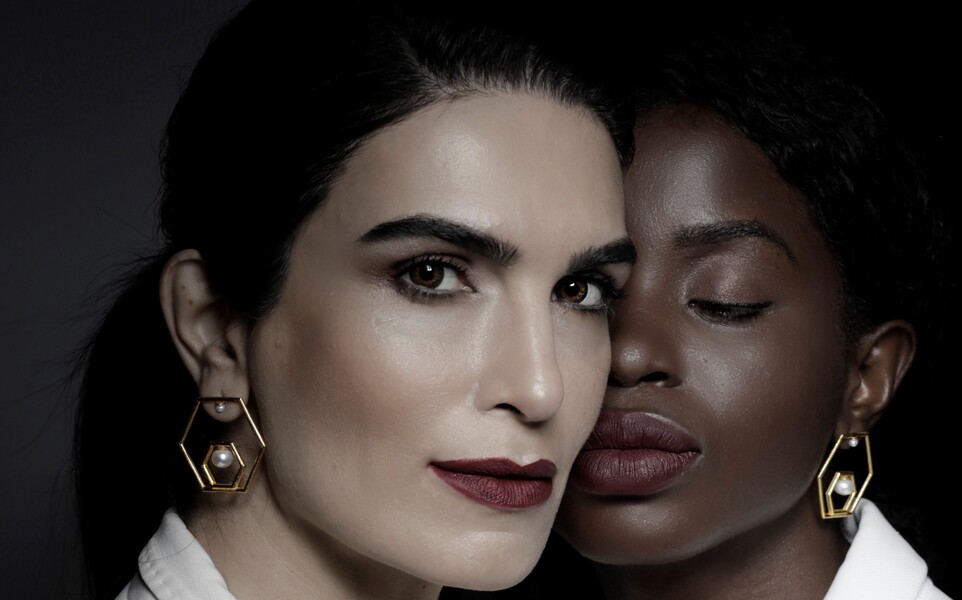
The jewellery making industry has been under tremendous scrutiny over the years for its carbon footprint contribution, labour exploitation, and ravaging the environment given metal mining is one of the most toxic pollutants but is also a requisite for jewellery making.
However, designer and entrepreneur Priyanka Sarkar, with her ethical and sustainable jewellery business, House of Biori, shows the world how it is is possible to be fair, eco-friendly and profitable without costing the planet.

Tell us about House of Biori
Biori is an evolving contemporary brand of unique, handcrafted, ethical fashion jewellery and accessories created by the artisans in sustainable communities across India, Africa, Eastern Europe and Thailand. It is developed on the principles – giving, earning and sustaining. No mass-produced wares, no unfairly paid makers and no middle men.
Formulated in 2018, Biori retails through curated multi design brick n motor platforms is Dubai, Bahrain and Mumbai. In January 2021, Biori established its own digital footprint- www.houseofbiori.com shipping worldwide.
What is the ecological and socio-economic impact of the jewellery making industry?
In jewelry, the most basic aspect of ethical production, supply chain transparency, is one of the most difficult to achieve. Why? Because most metals and minerals come out of the poorest regions on earth, and pass through multiple hands on their way to market, most without any traceability. Is the solution to stop using mined materials to make jewelry? Nope. The goal is to help them mine safely, and make sure that enough mining revenue remains with them so they can invest in the clean water, schools, and other services their families and communities need. But the challenge of tracing those materials remains. Yes, there have been some exciting developments in this area with companies like IBM, De Beers and Hoover and Strong taking strong leads, still the development can be termed as early stages.
The other critical aspect is gem-cutting (sometimes referred to as polishing). Gem cutting produces microscopic dust damaging to the lungs. There are currently dozens of efforts around the world to create gem cutting education and improve gem cutting facilities. Even once you get past the raw materials aspect of producing jewelry, jewelry production often uses harsh chemicals and can produce toxic waste.
Jewellery made of nontraditional materials has a high economic value, justified by the uniqueness and innovations are considered artifacts of luxury. Therefore, the use of new materials not only serves the purpose of sustainable living, this also possesses to create further possibilities to generate new trends for the future.
What is it that makes HOB jewellery sustainable?
Sustainability is an essential part of BIORI way and an increasing value add for consumers. Responsible business practices begin in the design phase with the choice of materials and suppliers, and continue through to how we craft, distribute and sell our jewellery.
To be able to design and create jewellery with natural, eco friendly, sustainable materials without any alterations to their shape, texture or color gives me the most incredible fulfillment and purpose.
Owning and operating the greater part of our value chain gives us control and transparency over the process, and strengthens collaboration across teams, functions and geographies – and so increases overall efficiency.
On the retail front, has there been an increase in consumer demand for sustainable jewellery over the years?
While the average shopper may not be aware of all the details behind a product, mind sets are beginning to shift. On one hand people want a good deal on the investment they make in terms of quality, design, look and feel. On the other hand they also want to have an assurance that the same is not being done at the cost of trashing the environment or affecting someone’s life. Be it in fine jewellery or fashion, shoppers have become more discerning, appreciating design, craftsmanship and uniqueness rather than an ostentatious display to demonstrate status.
How difficult has it been for you to thrive in an over-competitive market with new jewellery brands and stores launching almost every month and creating a niche for your brand?
For a business niche to be profitable, your potential customers must also be accessible, and accessing them must be affordable. We continuously strive to update our design & product development process to make it more consumer-centric ensuring we deliver new design concepts year on year.
We stay agile towards the macro trends and cultural movements that continuously arise, we operate an open capacity process that enables us to turn around new jewellery or accessory, from design to final product, in a few weeks. This gives us the agility to take advantage of the knowledge we gain from high performing products so that we can adapt to new consumer needs and stay ahead of trends.
Forecasting is actively applied at all stages of the process, from anticipating new trends and product demand through to forecasting raw material prices and assessing stock replenishment requirements on a store-by-store basis. We focus on a personal and relevant experience for every one of our customers telling inspiring and engaging product stories.
How sustainable is sustainability from a business and monetary point of view?
No one these days seriously denies the need for sustainable business practices. Even those concerned about only business and not the fate of the planet recognize that the viability of business itself depends on the resources of healthy ecosystems and on the stability of just societies. And yet collectively we have been a slow progress on reducing the damage business does to the world.
The problem is simple – It’s generally cheaper to buy the product that has a worse impact on its environment than the equivalent product that does less harm. Higher cost to the planet does not translate to a higher price to the customer.
Instead of asking either “how can we turn a profit?” or “how can we minimize our impact?” we need to see those as two sides of the same coin. Sustainability will simply be how business is done.
Like most “holy grail” objectives, sustainability as a firm’s most dependable route to financial high performance is an evolving concept. Viable operational practises staying conscious about the environment, investments in innovation, initiative and communication when taken as one collective, will and can turn a business model sustainable. The choice of considering what goes as quantifiable and what as qualitative needs a constant nurture.
You must be logged in to post a comment.